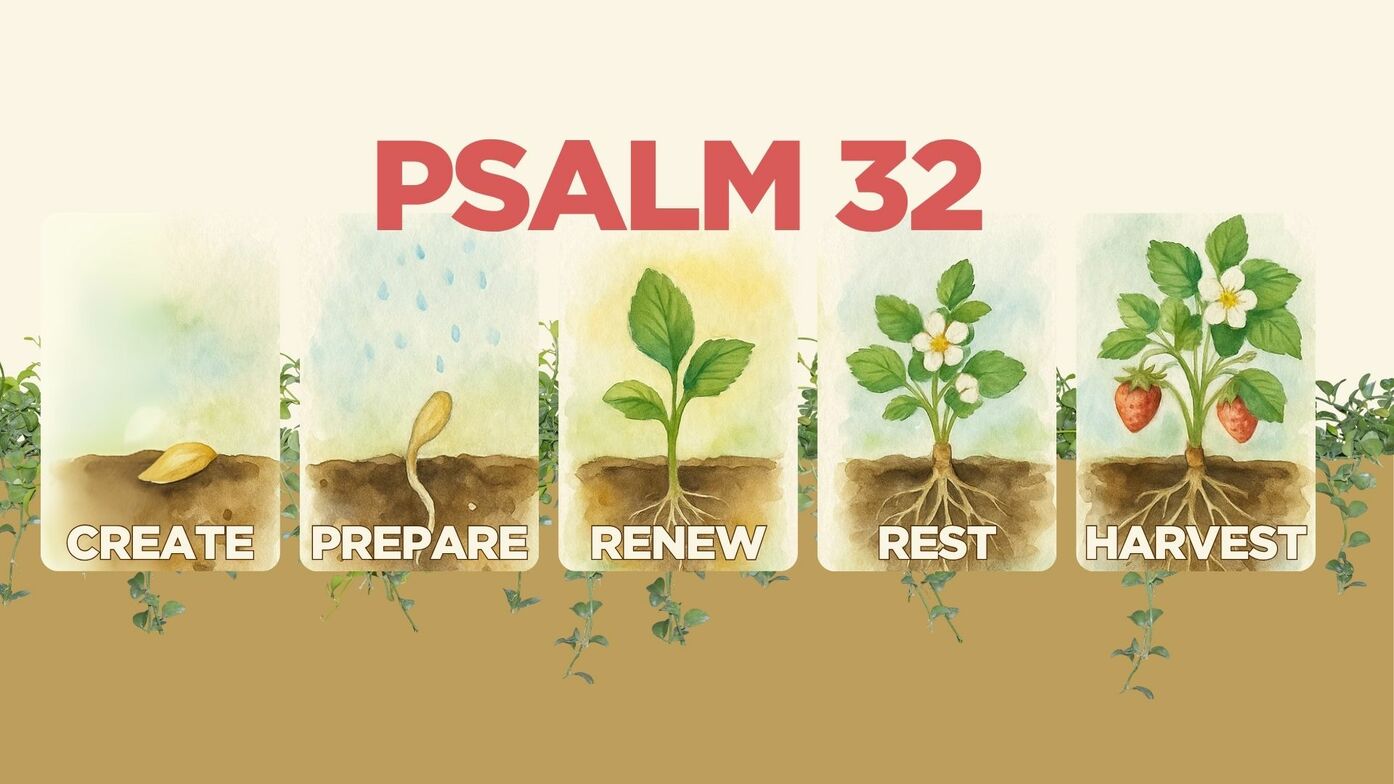
Summary
This sermon revolves around the metaphor of planting seeds and cultivating soil as a spiritual analogy for faith and growth in one's relationship with God. The speaker opens by sharing personal experiences from a recent family trip to nature spots like Mount Herman, Truckee, and Yosemite. Through these experiences, especially the observations about trees, rocks, and redwoods, the sermon introduces the concept of growth, interdependence, and the natural cycles of life, which parallel spiritual growth.
The core biblical passage is the Parable of the Sower from the Gospel of Mark, where Jesus describes how seeds fall on different types of ground—path, rocky soil, thorns, and good soil—resulting in varying outcomes. The sermon emphasizes that faith growth depends on the condition of the "soil" (the human heart) rather than the seed itself or the sower's efforts. It stresses that believers’ responsibility is to prepare their hearts to receive God's word by confession and openness rather than trying to control spiritual outcomes.
Using farming imagery and insights from Eugene Peterson’s book *Eat This Book*, the speaker highlights the importance of patience and trust in God’s timing for spiritual growth. Growth is likened to the natural rhythms of farming—connected to place and time, beyond human control. The sermon encourages the congregation to confess their shortcomings, distractions, and hard hearts so that God can prepare their soil for growth.
Finally, the sermon invites the congregation to engage in a year-long Bible study, emphasizing prayer, scripture memorization (starting with Psalm 32), and communal support, trusting that God will nurture the seed of faith within them in His perfect timing.
Highlights
- Family trip to nature inspired spiritual reflections on growth and faith.
- The Parable of the Sower forms the biblical foundation for understanding faith growth.
- Faith growth depends on the condition of the heart—the "soil"—not human effort.
- Spiritual growth requires patience, trust, and acceptance of God’s timing.
- Confession is key to preparing the heart to receive God’s transformative work.
- Spread the word of God broadly, without fear of rejection.
Key Insights
- Interdependence in Nature Mirrors Spiritual Life: The redwoods’ shallow roots intertwining to support one another reflect how believers must support each other spiritually. This natural phenomenon is a vivid metaphor for Christian community and mutual encouragement, reminding us that growth is rarely solitary.
- Faith Growth Is Not Fully Controllable: Just as a farmer cannot force seeds to grow faster or stronger, believers cannot manufacture faith growth in themselves or others. This insight challenges the common tendency to try to control or rush spiritual development, instead calling for trust in God’s sovereign timing.
- The Sower’s Careless Scattering Represents Bold Evangelism: The parable’s sower throws seed indiscriminately, which contrasts with a careful, calculated approach. This teaches that Christians are called to share God’s word broadly and boldly, without worrying about who is "ready" or "worthy," trusting God to work on the soil’s condition.
- Fire as a Catalyst for Renewal: The role of fire in clearing foliage to allow redwood seeds to grow symbolizes the sometimes painful or purifying experiences necessary for spiritual renewal. This suggests that trials or challenges may prepare the heart to receive God’s word more effectively.
- Confession as Soil Preparation: Honest acknowledgment of sin and personal shortcomings is portrayed as essential for making the heart fertile ground for God’s work. This practice fosters humility and openness, enabling spiritual transformation rather than resistance or blockage.
- Patience Is a Spiritual Discipline: Drawing from Eugene Peterson’s reflections on farming, the sermon highlights that spiritual growth requires patience and attentiveness to God’s timing and rhythms, resisting the modern impulse for immediate results. This fosters a deeper, more sustainable faith journey.
- Memorizing Scripture as Spiritual Cultivation: The encouragement to memorize Psalm 32 and other scriptures serves as a practical tool for embedding God’s word deeply within the heart, reinforcing faith growth, and providing spiritual nourishment throughout the year.
The sermon ultimately calls for a posture of surrender, patience, and faithfulness, trusting that God will nurture and grow the seed of faith within each person according to His perfect wisdom and timing. It invites the congregation into a communal journey of learning, confession, and spiritual cultivation, grounded in scripture and prayer.

